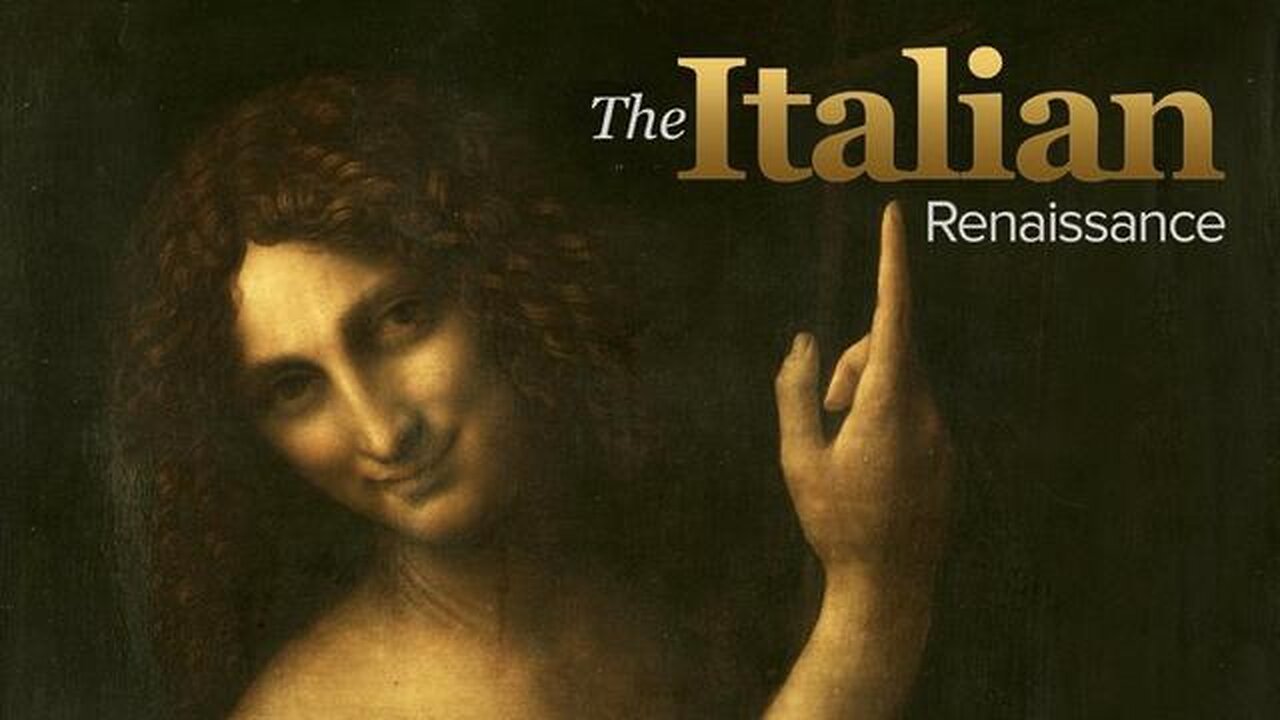Premium Only Content

The Italian Renaissance | Guicciardini and The History of Italy (Lecture 33)
Lecture 33: Guicciardini was a remarkable, if flawed genius. Born into the highest ranks of the Florentine patriciate, he studied law in order to further his ambitions. A brilliant man, he attracted the attention of the republic and served, despite his youth, as an ambassador to Spain in 1511. The fall of the republic affected him not at all, as he was appointed by the Medici Pope Clement VII as governor of Modena in 1516, followed by ever greater responsibility until he became one of the pope’s chief advisors.
Unfortunately, it was, in part, his advice that resulted in the sack of Rome in 1527, after which he retired to Florence, where the restored republic had little use for him. The return of the Medici rehabilitated Guicciardini, and he assisted in the irresponsible despotism of Alessandro, on whose murder he hoped to advance. Cosimo de’Medici, however, intended to rule personally, and Guicciardini sought refuge in scholarship. During his diplomatic and political career, he had written some history and a collection of maxims that reflected his belief in experience over abstraction and his cynical belief in human fallibility. He himself had little loyalty and did whatever those in power required. However, his monumental work, The History of Italy, completed just before his death, became the model for new Humanist historiography, using documentary evidence and making balanced judgments on men and events. This book has been called the most important work of history between Tacitus and Gibbon.
Primary Source Texts:
Kenneth R. Bartlett, “Francesco Guicciardini,” pp. 381−391, in The Civilization of the Italian Renaissance.
Francesco Guicciardini, The History of Italy.
Secondary Sources:
Mark Phillips, Francesco Guicciardini: The Historian’s Craft.
Supplementary Reading:
Felix Gilbert, Machiavelli and Guicciardini: Politics and History in Sixteenth-Century Florence.
Lecture 34: https://rumble.com/v4ywe5h-the-italian-renaissance-the-counter-reformation-lecture-34.html
-
 30:12
30:12
The Great Courses
2 months agoThe Age of Pericles | Athens after Pericles (Lecture 21)
53 -
 3:19:21
3:19:21
Price of Reason
13 hours agoHollywood Celebrities FLEE the US After Trump Win! Wicked Movie Review! Gaming Journos MAD at Elon!
62.8K37 -
 3:55:45
3:55:45
Alex Zedra
8 hours agoLIVE! Last Map on The Escape: SCARY GAME.
66.2K3 -
 1:14:07
1:14:07
Glenn Greenwald
13 hours agoComedian Dave Smith On Trump's Picks, Israel, Ukraine, and More | SYSTEM UPDATE #370
165K216 -
 1:09:07
1:09:07
Donald Trump Jr.
15 hours agoBreaking News on Latest Cabinet Picks, Plus Behind the Scenes at SpaceX & Darren Beattie Joins | TRIGGERED Ep.193
203K713 -
 1:42:43
1:42:43
Roseanne Barr
11 hours ago $61.84 earnedGod Won, F*ck You | The Roseanne Barr Podcast #75
89.1K191 -
 2:08:38
2:08:38
Slightly Offensive
12 hours ago $38.02 earnedDEEP STATE WINS?! Matt Gaetz OUSTED as AG & Russia ESCALATES War | Guest: The Lectern Guy
87.1K56 -
 1:47:36
1:47:36
Precision Rifle Network
12 hours agoS3E8 Guns & Grub - the craziness continues
65.6K4 -
 41:37
41:37
Kimberly Guilfoyle
14 hours agoPresident Trump Making all the Right Moves,Live with Border Union Chief Paul Perez & Lawyer Steve Baric | Ep. 176
153K45 -
 19:38
19:38
Neil McCoy-Ward
16 hours agoMASS LAYOFFS Have Started... (How To Protect Your Income)
57.3K9